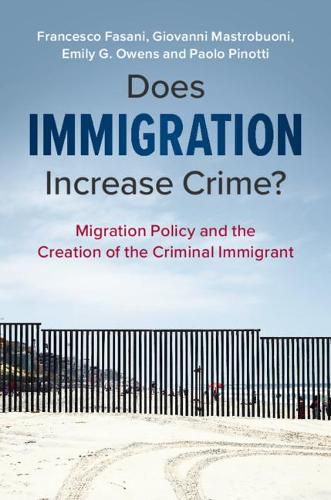Readings Newsletter
Become a Readings Member to make your shopping experience even easier.
Sign in or sign up for free!
You’re not far away from qualifying for FREE standard shipping within Australia
You’ve qualified for FREE standard shipping within Australia
The cart is loading…






Do migrants lead to an increase of crime rates in their host societies? This highly contentious issue has become a mainstay in the political debate and a lightning rod for the galvanization of populist movements, despite often lacking any empirical support. In this game-changing book, the authors examine what the existing data actually says, and provide their own novel evidence on the immigration-crime connection. Taking the unusual approach of analysing the subject from an economic perspective, the authors build on the pioneering work of Nobel Prize winner Gary Becker to construct their innovative arguments. By considering evidence from different countries, with a focus on establishing causal relationships, the authors are able to analyse not only if migrants do cause crime but also whether migration policies can play a role in shaping incentives for migrants to engage in crime. This book will appeal to students and academics across the social sciences, as well as citizens interested in this topical issue.
$9.00 standard shipping within Australia
FREE standard shipping within Australia for orders over $100.00
Express & International shipping calculated at checkout
Do migrants lead to an increase of crime rates in their host societies? This highly contentious issue has become a mainstay in the political debate and a lightning rod for the galvanization of populist movements, despite often lacking any empirical support. In this game-changing book, the authors examine what the existing data actually says, and provide their own novel evidence on the immigration-crime connection. Taking the unusual approach of analysing the subject from an economic perspective, the authors build on the pioneering work of Nobel Prize winner Gary Becker to construct their innovative arguments. By considering evidence from different countries, with a focus on establishing causal relationships, the authors are able to analyse not only if migrants do cause crime but also whether migration policies can play a role in shaping incentives for migrants to engage in crime. This book will appeal to students and academics across the social sciences, as well as citizens interested in this topical issue.